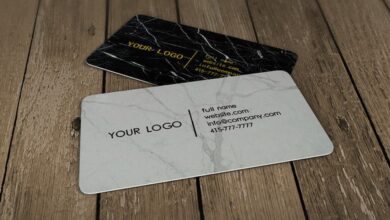For many people, owning a home is a major life goal and an investment that provides security and financial stability. However, coming up with a down payment can be challenging, leading some to consider using funds from their 401(k) retirement account to make the purchase. This approach can be tempting, especially with the rising costs of real estate, but it’s essential to weigh the benefits and potential drawbacks carefully. Here’s an in-depth look at what it means to use your 401(k) to buy a home and the key factors you should consider.
Understanding How 401(k) Withdrawals Work for Home Purchases
A 401(k) is a retirement savings account funded by pre-tax contributions, often matched by employers, which grows tax-deferred until retirement. In most cases, accessing 401(k) funds before the age of 59½ incurs a 10% early withdrawal penalty, along with taxes on the withdrawn amount. However, some people are willing to face these costs to achieve their goal of homeownership.
There are two main ways to access 401(k) funds for a home purchase:
- 401(k) Withdrawal: Taking a distribution directly from your account.
- 401(k) Loan: Borrowing funds from your account, which must be repaid with interest.
Each option has distinct implications, so it’s essential to explore the pros and cons of each to determine which might be better suited for your needs.
Option 1: Using a 401(k) Withdrawal
Pros of a 401(k) Withdrawal
- Immediate Access to Funds: Unlike other sources of financing, a 401(k) withdrawal can provide you with funds quickly, allowing you to make a competitive offer on a property.
- No Repayment Obligation: Since it’s a withdrawal, you won’t need to pay back the amount like a loan, which can be attractive if your income is uncertain or if you want to avoid additional monthly expenses.
Cons of a 401(k) Withdrawal
- Penalties and Taxes: As mentioned, withdrawing funds before age 59½ usually incurs a 10% penalty. In addition, the withdrawal amount is subject to income tax, which can reduce your available funds significantly.
- Impact on Retirement Savings: Taking money out of your 401(k) reduces the amount that’s growing for your retirement. This can mean missing out on potential compounding growth, which could impact your long-term financial security
Option 2: Using a 401(k) Loan
With a 401(k) loan, you can borrow up to 50% of your vested balance or $50,000, whichever is less. You’re typically required to repay the loan, with interest, within five years.
Pros of a 401(k) Loan
- No Early Withdrawal Penalty: A 401(k) loan allows you to access your retirement funds without the 10% early withdrawal penalty, which can save you money upfront.
- Interest Paid to Yourself: Unlike other loans, the interest paid on a 401(k) loan goes back into your account, meaning you’re essentially paying yourself instead of a lender.
- Quick Access to Funds: Similar to a withdrawal, a 401(k) loan provides rapid access to your money, which can be advantageous in a competitive real estate market.
Cons of a 401(k) Loan
- Repayment Obligation: Unlike a withdrawal, a 401(k) loan must be repaid, usually through automatic payroll deductions. Missing payments could result in the loan being considered a withdrawal, leading to penalties and taxes.
- Potential Double Taxation: Since 401(k) loans are repaid with after-tax dollars, you may face double taxation—once when repaying the loan and again upon withdrawal at retirement.
- Risk of Financial Strain: If you lose your job or face financial hardship, the loan becomes due immediately. Failing to repay it in full could turn it into an early distribution, leading to penalties and taxes.
Additional Considerations Before Using Your 401(k)
Before deciding to use your 401(k) for a home purchase, consider these key factors to ensure you’re making the best financial choice for your future:
- Explore Other Financing Options: Look into down payment assistance programs, FHA loans, and other options that might reduce the need to dip into retirement savings. Exhausting these alternatives first can protect your 401(k) balance for retirement.
- Evaluate Your Future Financial Goals: Consider how accessing your retirement funds now will impact your long-term financial security. A strong retirement plan might allow you to retire comfortably, even if it means delaying a home purchase.
- Consult a Financial Advisor: Seeking advice from a financial professional can provide insight into the tax implications, penalty amounts, and the potential impact on your retirement goals, helping you make an informed decision.
Pros of Using Your 401(k) to Buy a House
If carefully considered, using your 401(k) to buy a home can have significant advantages:
- Flexibility in a Competitive Market: Access to immediate funds can make your offer more attractive, especially when facing competitive bidding situations.
- Investment Diversification: Real estate can serve as a valuable addition to your overall investment portfolio, providing diversification beyond stocks and bonds.
- Potential for Appreciation: A home’s value may appreciate over time, potentially offsetting the opportunity cost of withdrawing from your 401(k).
Cons of Using Your 401(k) to Buy a House
Conversely, there are potential downsides to withdrawing from your retirement account:
- Loss of Compound Growth: The primary downside of using your 401(k) is the potential reduction in long-term retirement savings. Withdrawn funds won’t have the chance to grow over decades.
- Financial Setback for Retirement: Taking funds from your retirement account could mean having to save more aggressively later in life to make up the difference.
- Possible Financial Strain: If you’re repaying a 401(k) loan while managing a mortgage and other expenses, it can add pressure to your budget, especially if your income isn’t guaranteed.
Alternatives to Using Your 401(k) for a Down Payment
If using your 401(k) feels too risky, consider alternative options that can help you secure a down payment without dipping into retirement savings:
- Down Payment Assistance Programs: Many states and cities offer programs designed to help first-time homebuyers with down payments. These programs often have favorable terms and can make it easier to get into a home without large upfront costs.
- Gift Funds from Family: Some buyers use gift money from family members for a down payment, which can be a less risky option if your family is supportive.
- Other Retirement Accounts: If you have an IRA, you may qualify for penalty-free withdrawals for a first-time home purchase (up to $10,000 for individuals), which might be a less risky way to access retirement funds.
Final Thoughts: Is Using Your 401(k) the Right Choice?
Using your 401(k) for a home purchase can be a strategic move, but it’s not without significant risks. The decision comes down to your current financial situation, future income potential, and long-term retirement goals. If you’re determined to buy a home now and have exhausted all other options, a 401(k) loan might offer a middle ground by providing access to funds without an early withdrawal penalty.
However, it’s crucial to understand the potential impact on your retirement savings. Always consult a financial advisor to evaluate the best option for your unique situation. Owning a home is a valuable goal, but protecting your retirement funds is equally important to ensure financial stability throughout your life.




